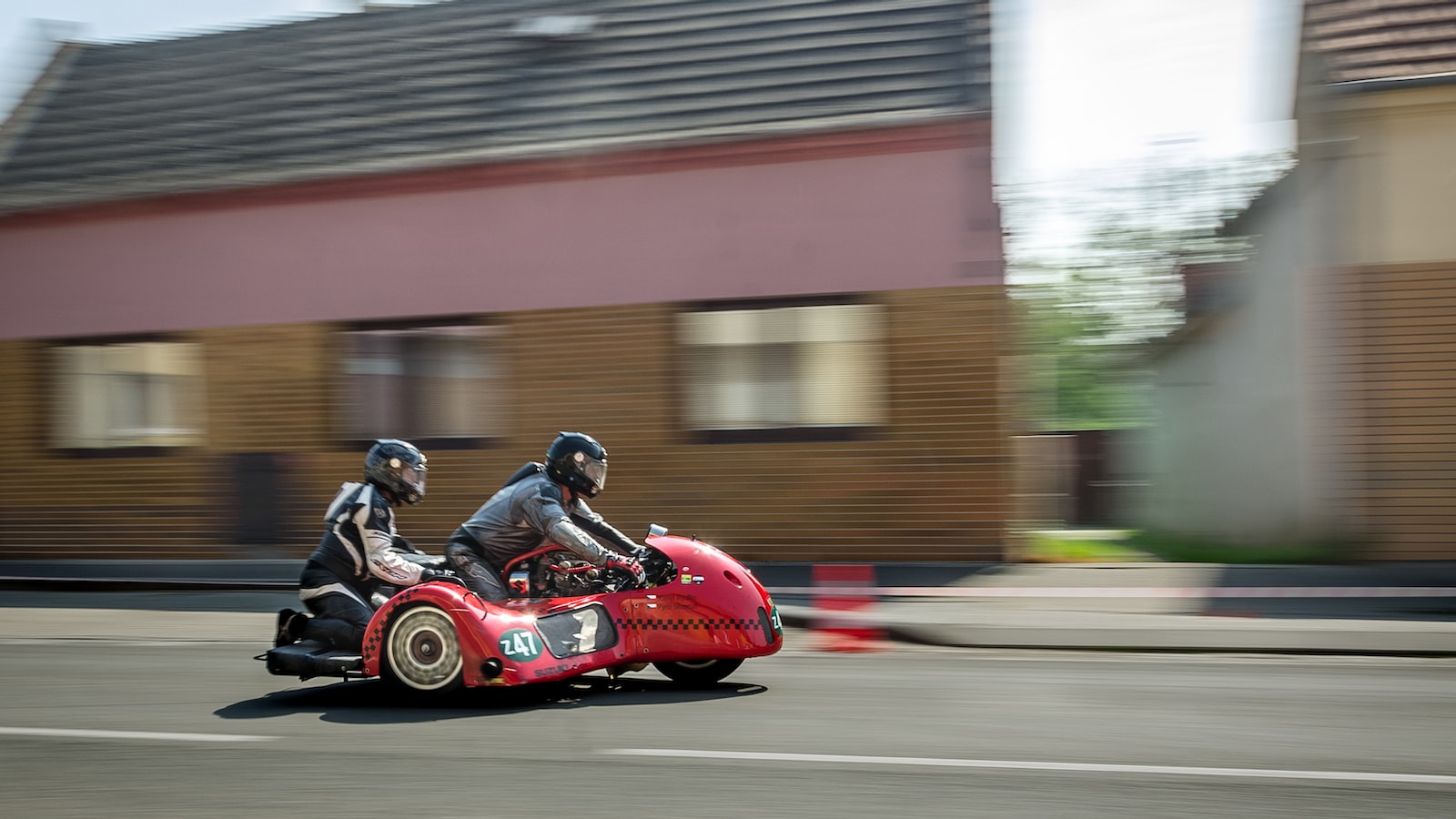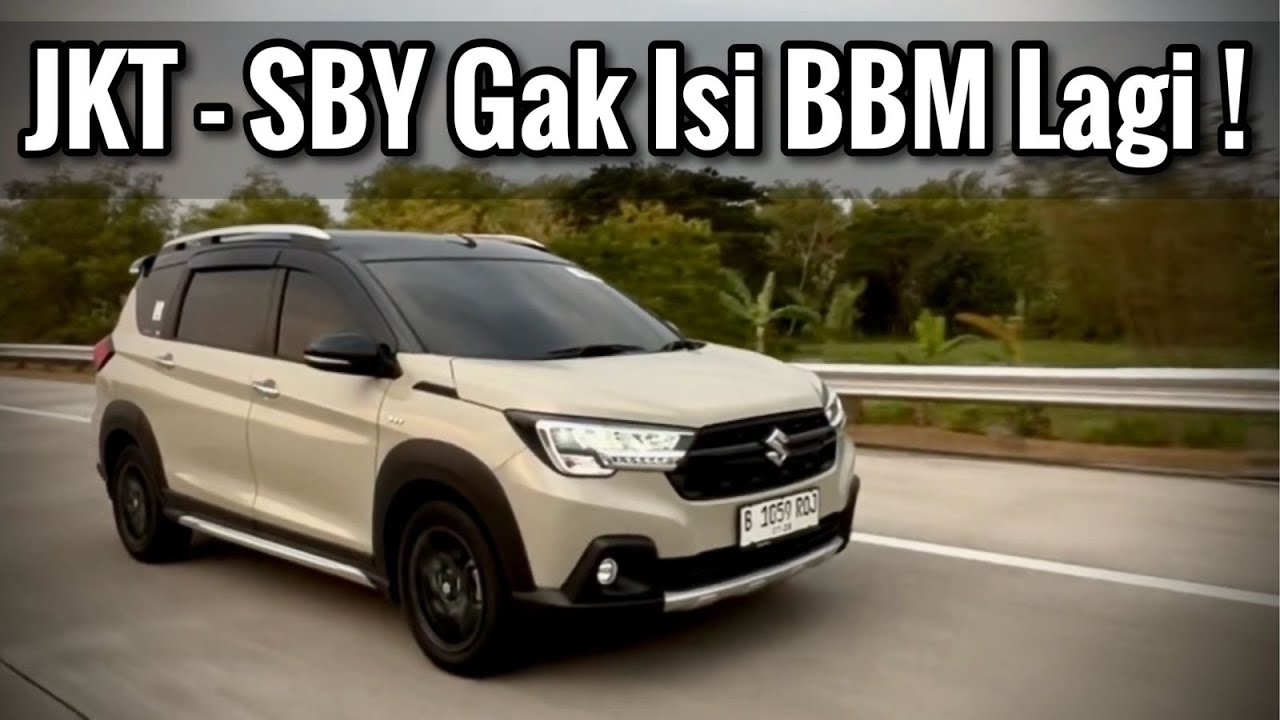Welcome to our blog post! Today, we will be discussing the topics covered in a captivating YouTube video titled "SUZUKI XL7 Smart Hybrid Indikator Bensin Seakan Gak Berfungsi." In the video, the presenter delves into the unique history of the Suzuki XL7, highlighting its one-of-a-kind crossover features and almost hybrid-like ability to travel from Jakarta to Surabaya on just one tank of gasoline. The Suzuki XL7 has always distinguished itself by creating vehicles that have no rivals, just like the iconic Jimny, which revolutionized the concept of small SUVs in Indonesia. However, Suzuki has also been known for challenging conventions and lowering the class of its vehicles, as seen with the Baleno. In this YouTube video, the presenter takes the XL7 for a test drive, proving its impressive fuel efficiency by driving 700 kilometers from Jakarta to Surabaya on a single tank of fuel. To witness this remarkable feat and delve deeper into the features of the Suzuki XL7, head over to the channels of Om Mobi and Fitra Eric for an in-depth review. So, let’s explore this unique hybrid crossover that meets the demands of Indonesian consumers looking for both fuel efficiency and practicality.
- Introduction to the Suzuki XL7 Smart Hybrid

The Suzuki XL7 Smart Hybrid is a unique crossover that combines the functionality of an MPV with the efficiency of a hybrid engine. Suzuki has always been known for creating vehicles that stand out from the crowd, and the XL7 is no exception. Just like the iconic Jimny, which pioneered the compact SUV segment in Indonesia, the XL7 brings something different to the table.
While other SUVs boast large and fuel-guzzling engines, the XL7 takes a different approach with its smaller engine and compact body. Suzuki has always been keen on setting trends and breaking conventions, as seen with the Suzuki Baleno, which was initially positioned alongside popular sedans like the Civic, Corolla, and Lancer, but now competes with smaller hatchbacks like the Yaris and Jazz. The XL7 follows a similar pattern by offering a crossover with SUV-like characteristics at a more affordable price point.
The first-generation XL7 was introduced in 1998 and made its way to Indonesia in 2003. With its SUV-like appearance and a capacity to accommodate seven passengers, it attracted the attention of many. However, the high price tag and the absence of a 4×4 variant limited its popularity. Despite this, Suzuki loyalists got to enjoy the first-generation XL7 for years, but there was no sign of a second-generation model until 2020 when Suzuki Indonesia unveiled the all-new XL7. This time, the XL7 adopted a crossover stance, built on the platform of an MPV, with a downsized nameplate. Despite the shift in positioning, the XL7 Hybrid proves to be exactly what Indonesian consumers need – an economical vehicle that goes from being fuel-guzzling to fuel-saving. In fact, in a test drive from Jakarta to Surabaya, the XL7 covered 700 kilometers on just one tank of fuel. Proof that this hybrid is not just a downgrade, but an upgrade in terms of fuel efficiency.
– Unique Features and History of the Suzuki XL7

The Suzuki XL7 is a unique crossover that is based on an MPV platform. It is the only crossover that is almost hybrid in its engine design, making it a one-of-a-kind vehicle in the world. One remarkable feature of the XL7 is its ability to travel from Jakarta to Surabaya with just one tank of fuel, which is quite impressive. This is thanks to its Suzuki Excel 7 Smart hybrid technology.
Suzuki has a history of creating vehicles that stand out and have no competitors. For example, the Jimny was a pioneer in the small SUV segment and had no rivals in Indonesia at the time of its release. While other SUVs had big, fuel-hungry engines, the Jimny came with a small engine and a compact body. Suzuki continues to innovate and differentiate itself from the competition by sometimes downgrading its vehicles, as seen with the Suzuki Baleno. When the Baleno was first released in 1996, it was in the same class as the Civic, Corolla, and Lancer. However, in recent times, the Baleno has been positioned in a lower class, comparable to the Yaris or Jazz. This unique approach is also seen in the Suzuki XL7. The first-generation XL7 was introduced in 1998 and made its way to Indonesia in 2003. It had a more SUV-like appearance and was often seen as a crossover due to its design elements. Despite its appeal, the XL7 was quite expensive for the Indonesian market, and its lack of four-wheel drive capabilities limited its sales. Therefore, only the first-generation XL7 was available in Indonesia for many years, while the second generation was not seen in the country until 2020.
– The Suzuki XL7 Hybrid: Fuel Efficiency and Performance

The Suzuki XL7 Hybrid is a unique crossover that combines fuel efficiency and performance in one package. Suzuki has a history of creating vehicles that stand out from the competition, and the XL7 Hybrid is no exception. With its hybrid engine, this crossover is almost a pioneer in the world of hybrid crossovers. It is the only crossover in its class that can travel from Jakarta to Surabaya on just one tank of fuel.
Suzuki has always been known for pushing boundaries and creating vehicles that are unlike anything else on the market. Just like the Jimny, an SUV that had no rival and the Baleno, a car that competed with higher-class models but was later repositioned to target a different market. The XL7 follows in this tradition, blending the characteristics of an SUV with the practicality of a crossover. With its resemblance to the Grand Escudo and seven-passenger capacity, the XL7 Hybrid offers the appeal of a V6-powered SUV with a 2500cc capacity. Despite the initial high price point, Suzuki recognized the need to cater to the Indonesian market, leading to the introduction of the more affordable and fuel-efficient XL7 Hybrid.
What sets the XL7 Hybrid apart is its ability to provide improved fuel economy without compromising on performance. The video demonstrates the car’s impressive efficiency, showcasing a journey of 700 km from Jakarta to Surabaya on just one tank of fuel. This proves that the XL7 Hybrid is no longer a gas-guzzler but a fuel-efficient option that saves drivers money on gasoline. The review by Mamang further confirms the XL7 Hybrid’s capabilities, showcasing its durability as it braves the dusty terrains of hilly terrains with ease. With its combination of fuel efficiency, performance, and adaptability, the Suzuki XL7 Hybrid is a standout choice for those seeking a crossover that exceeds expectations.
– Conclusion and Recommendations for the Suzuki XL7 Smart Hybrid

The Suzuki XL7 Smart Hybrid is a unique crossover that is based on an MPV design. Suzuki has always been known for creating vehicles that stand out in the market, and the XL7 is no exception. This crossover is almost hybrid, making it one of the few vehicles of its kind in the world. One of its impressive features is its exceptional fuel efficiency. It can travel from Jakarta to Surabaya, a significant distance, using just one tank of fuel. This makes it an ideal vehicle for those looking for an economical and environmentally friendly option.
In terms of Suzuki’s history, they have always strived to create vehicles that are in a class of their own. For example, the Jimny, which was a pioneer in the small SUV category, had no competition in Indonesia during its time. The same uniqueness can be seen in the Suzuki Baleno, which originally entered the market in 1996 with a class equivalent to the Civic, Corolla, or Lancer. However, the current generation of the Baleno has shifted to a lower class, comparable to the Yaris or Jazz.
The Suzuki XL7 follows a similar pattern. The first generation of this crossover, which debuted in 1998 and entered the Indonesian market in 2003, had a more SUV-like appearance with the resemblance of the Grand Escudo. However, it was expensive for the Indonesian market and lacked 4×4 capabilities, which affected its sales. Since then, only the first generation has been available in Indonesia, and there hasn’t been a second-generation model in sight. However, in 2020, Suzuki introduced the XL7 to the Indonesian market once again, this time as a crossover that emerged from an MPV design. Despite the shift to a lower class, this unique hybrid model addresses the needs of Indonesian consumers who appreciate its fuel efficiency. Test drives have shown that the XL7 can cover a distance of 700 kilometers from Jakarta to Surabaya with just one tank of fuel, showcasing its remarkable capability.
The Suzuki XL7 Smart Hybrid is a testament to Suzuki’s commitment to innovation and meeting the needs of consumers. Its fuel-efficient hybrid technology combined with its spacious and versatile design make it a desirable option for those seeking a practical and eco-friendly crossover. Suzuki’s ability to create vehicles that are distinct and offer unique capabilities is evident in the XL7, catering to the evolving preferences of Indonesian car buyers. In conclusion, the Suzuki XL7 Smart Hybrid is a unique crossover that stands out from its competitors. Suzuki has a history of creating innovative and one-of-a-kind vehicles, and the XL7 is no exception. While many SUVs have large and fuel-consuming engines, Suzuki took a different approach by designing a smaller, more efficient hybrid engine for the XL7.
The XL7 has the capability to travel from Jakarta to Surabaya with just one tank of fuel, making it incredibly economical and practical for Indonesian drivers. Its crossover design offers the spaciousness and comfort of an SUV while still being a versatile MPV. This combination makes the XL7 a desirable choice for those who want the best of both worlds.
Although the XL7 has a smaller size and a more affordable price tag compared to its predecessor, the XL7 remains true to Suzuki’s commitment to quality and performance. Its second-generation model, introduced in 2006, offers even more space and functionality, catering to the needs of Indonesian families.
Furthermore, the XL7 Smart Hybrid proves to be an efficient and cost-effective solution for Indonesian drivers who want to save on fuel expenses without compromising on performance. With a range of 700 kilometers on just one tank of fuel, it demonstrates Suzuki’s dedication to creating environmentally friendly vehicles that meet the demands of the Indonesian market.
In summary, the Suzuki XL7 Smart Hybrid is a testament to Suzuki’s ingenuity and versatility. It combines the best features of an SUV and an MPV, providing ample space, fuel efficiency, and impressive performance. Whether you’re a city dweller or a frequent long-distance traveler, the XL7 Smart Hybrid is a reliable and economical choice. Experience the thrill of driving this remarkable vehicle by checking out Motomobi’s YouTube channel for a firsthand review and witness the XL7’s capabilities for yourself. Don’t miss out on the latest developments in Suzuki’s lineup, subscribe to Om Mobi and Fitra Eric’s channels for more automotive content.
